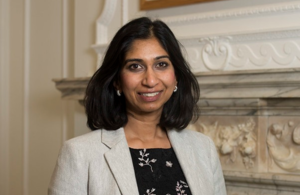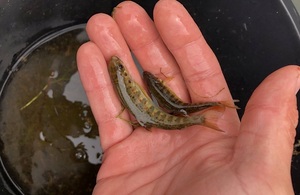Places of Worship Protective Security Fund open for applications
Mosques and Muslim faith schools have been given access to £24.5 million for security measures to protect their places of worship and schools and make our streets safer, the security minister has announced today (19 May).
Muslims continue to experience an increased threat of hate crime. In 2020/2021, 45% of religious hate crimes recorded by the police in England and Wales were targeted against Muslims.
From today, places of worship can bid for funding to put in place security measures to help tackle this threat. This could include the installation of CCTV cameras and perimeter fencing to ensure that adequate measures are in place to protect worshippers. Muslims will be also able to register their interest in security guarding services at mosques, to ensure that their communities can worship safely and without fear.
In addition, £3.5 million is available for other faith communities through the government’s Places of Worship Fund. Applications are now open and all places of worship who feel they are vulnerable to hate crime are encouraged to apply. This scheme runs alongside the Jewish Community Protective Security grant, which provides protective security for the Jewish community and was recently renewed for this year.
This latest round of funding marks the government’s ongoing commitment to protecting people’s right to practise their faith without fear and to making our streets safer.
Security Minister, Damian Hinds said:
It is a fundamental right to be able to practise your faith in your community.
This new round of funding will cover the costs of security measures for places of worship to deter and prevent hate crime attacks on vulnerable communities, making our streets safer.
I encourage any place of worship which feels vulnerable to hate crime to apply for funding through the Places of Worship fund.
Director of Tell MAMA, Iman Atta said:
The additional support from this government to ensure security support through guarding services is warmly welcomed and much needed.
Tell MAMA has regularly called for additional support to Islamic institutions and mosques and in line with the national anti-Muslim hate crime monitoring and support services that Tell MAMA provides on an ongoing basis. Collectively, this support from the government should be welcomed and applauded.
The Places of Worship Fund is part of the government’s commitment to ensure that faith communities in England and Wales are protected from the threat of hate crime attacks by providing funding to places of worship such as churches, mosques, gurdwaras, temples and associated faith community centres in order to improve physical security.
The Crime Survey for England and Wales shows a long-term decline in overall hate crime. Increases in police recorded hate crime in recent years have been driven by improvements in crime recording and a better identification of what constitutes a hate crime.
As part of this increased package, the government is introducing a new scheme for Muslim faith schools to provide additional protection that will be rolled out later in the year.

